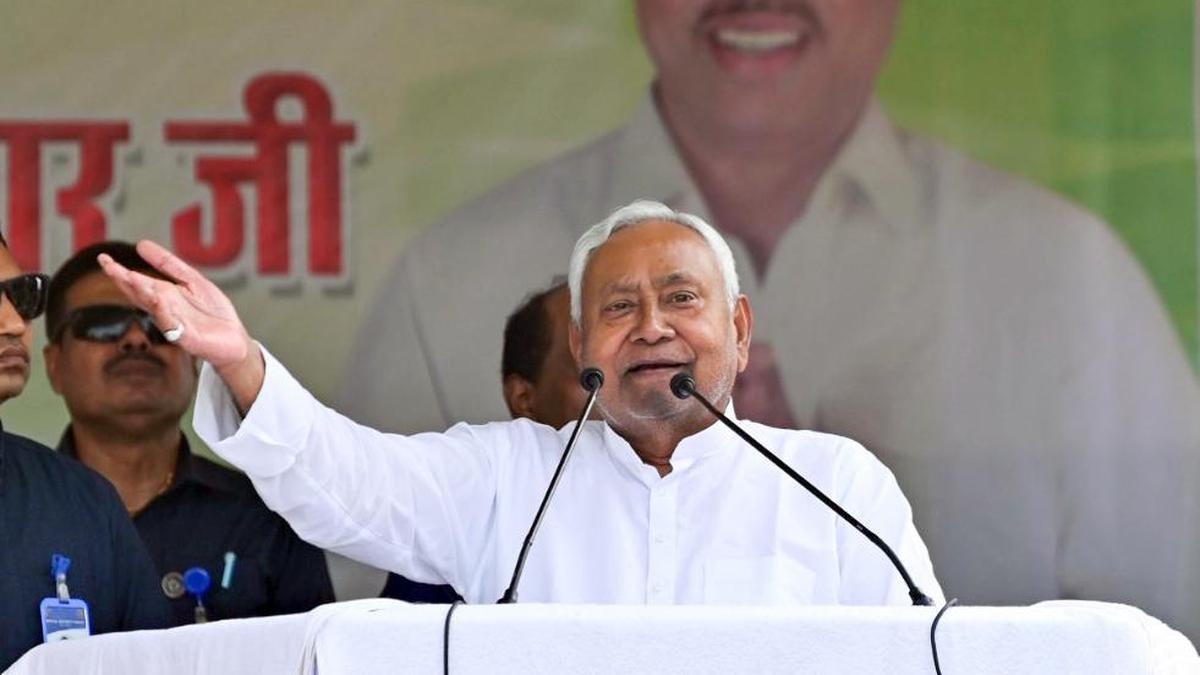Copyright thehindu

For Kaushalendra Chouhan, a daily wage labourer from Makhdumpur, work is erratic, often requiring him to travel long distances. Yet he claims that travel has become easier and far safer under the present government. “There is no fear of being robbed while travelling at night,” he says. Some 250 km at the Keoti Assembly constituency, Ram Nath Thakur says life has not materially changed for him. He works in Kolkata and has returned home for the festivals and elections. He is a barber by profession and caste. “One can’t make a living here. There are hardly any customers here,” he says. Mr. Chouhan and Mr. Thakur are both from the Extremely Backward Class (EBC), a diverse group of castes comprising 36% of the State’s population, as per the caste count in Bihar. This group is entirely Bihar Chief Minister and Janata Dal (United) leader Nitish Kumar’s creation, ostensibly for ensuring better reach of welfare policies. This classification is based on a reservation policy of 1978 implemented by Karpoori Thakur. Thakur, a Nai (barber) by caste, remains the tallest EBC leader in the State. He reserved 26% of new government positions for “Backward Classes”, in addition to existing quotas for Scheduled Castes and Adivasis (24% combined). The Backward Classes were further divided into two lists. Annexure I, who among the backwards were economically and socially worse off, got 12% reservation and 8% for Annexure II communities who were socially better placed. The Annexure II is now categorised as Other Backward Classes and include the Yadavs among others. The EBC has historically been loyal to Mr. Kumar. The Mahagatbandhan’s success in the upcoming elections will largely depend on its ability to win over a portion of this crucial vote bank. In the last two decades that Mr. Kumar has been in power, Mr. Chouhan’s and Mr. Thakur’s economic condition has not significantly improved. Yet, their electoral choice remains unchanged. Both have voted for the NDA in the past elections and continue to do so. Their choices are based partly on aversion for the Rashtriya Janata Dal (RJD) and partly on their loyalty for Mr. Kumar. In the 2020 Assembly elections, the victory margin was less than 5,000 in 52 of the 243 constituencies in Bihar. Even a minor shift in caste-based political loyalties could change the results. The Hilsa constituency in Nalanda district exemplifies this volatility. In the 2020 election, JD(U) won the seat. “People’s mandate was in my favour,” RJD leader Atri Muni says. He had been declared victor by a margin of 549 votes at 5 p.m. The JD(U)’s candidate Krishnamurari Sharan congratulated Mr. Muni and left the counting centre. But an hour later, Mr. Sharan was declared the winner with a difference of 12 votes. Mr. Muni had challenged the result, but the Patna High Court took three-and-a-half years to admit the plea, only to eventually dismiss it. Mr. Muni reels off the caste arithmetic of Hilsa: with Yadavs and Kurmis evenly matched, the fragmented EBC vote will once again be decisive. But not all are happy. Birendra Mistri is upset at the bribes he has to pay to get any paperwork done in the block office. He comes from the Badai caste that falls under EBC group. “Nitish stands for caste-based politics. He has filled the departments with officials from his caste… all his policies are limited to the paper. Nothing translates on the ground,” he says. Having voted for the JD(U) in multiple elections, he is now looking for options. Rajesh Kumar Sahu, also an EBC, nods along to Mr. Mistri’s appraisal. He runs a small grocery shop. The business has been slow. His quibble with the government is the mass migration. “If everyone leaves, then how will I have customers,” Mr. Sahu says. He too, like Mr. Mistri, is looking for options, but he rules out the RJD. “I could vote for Jan Suraaj,” he replies after thinking for a while. He is familiar with Jan Suraaj founder Prashant Kishor, but the candidate for Hilsa is not a familiar face. “I will see closer to the election, depending on which way everyone is voting,” he says. RJD, though aware of its limitation in breaking Mr. Kumar’s stranglehold, has only 13 EBC candidates, as opposed to JD(U) which has 21. The Mahagatbandhan this time has two EBC parties – Mukesh Sahani’s Vikashsheel Insaan Party that represents the Mallahs and Nishads, and I.P. Gupta’s Indian Inclusive Party that represents Tanti-Pan Samaj. But whether these relatively new entrants can mobilise enough support to shift the balance remains to be seen. For now, Nitish Kumar continues to be the preferred choice for a majority of EBC voters.



